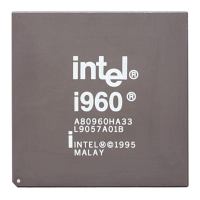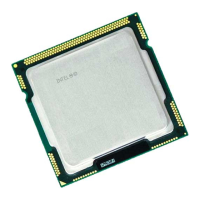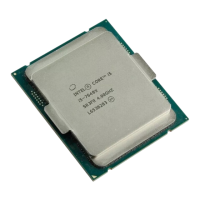i960 Processor Compiler User's Guide
7-42
7
A typeof construct can be used anywhere a typedef name could be used.
For example, you can use it in a declaration, in a cast, or inside of
sizeof
or typeof.
• This declares
y with the type of what x points to:
typeof (*x) y;
• This declares y as an array of such values:
typeof (*x) y[4];
• This declares y as an array of pointers to characters:
typeof (typeof (char *)[4]) y;
It is equivalent to the following traditional C declaration:
char *y[4];
To see the meaning of the declaration using typeof, and why it might be a
useful way to write, try rewriting it with these macros:
#define pointer(T) typeof(T *)
#define array(T, N) typeof(T [N])
Now the declaration can be rewritten this way:
array (pointer (char), 4) y;
Thus, array (pointer (char), 4) is the type of arrays of 4 pointers to
char.
Generalized Lvalues
Compound expressions, conditional expressions and casts are allowed as
lvalues provided their operands are lvalues. This means that you can take
their addresses or store values into them.
For example, a compound expression can be assigned, provided the last
expression in the sequence is an lvalue. These two expressions are
equivalent:
(a, b) += 5
a, (b += 5)
